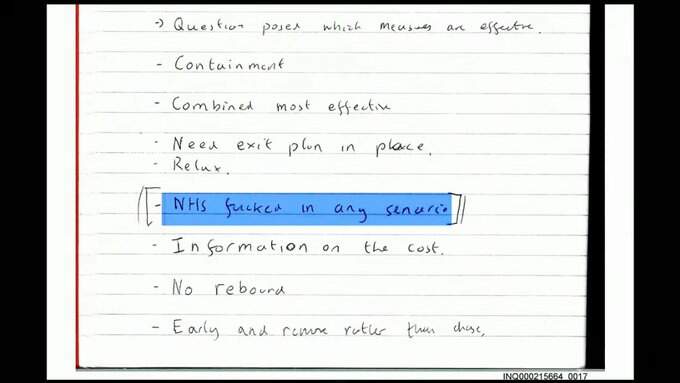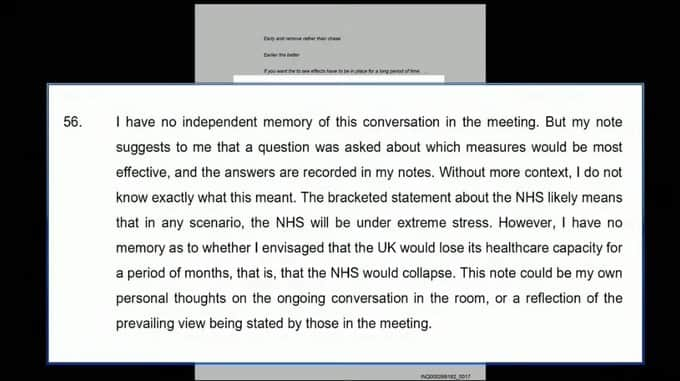The UK Covid-19 Inquiry is hearing from more witnesses in London
- Giving evidence this morning are Clare Lombardelli, a former adviser to the Treasury, and Stuart Glassborow, a former civil servant in the PM’s team
- This afternoon it’s Ben Warner, a former Downing Street adviser
Boris Johnson joked about Treasury being the ‘pro death squad’ (1) during pandemic, Covid inquiry told
At the Covid inquiry Stuart Glassborow, deputy principal private secretary to Boris Johnson during coronavirus, has been giving evidence.
Dermot Keating, counsel for the inquiry, was asking the questions, and he has just asked Glassborow about an entry in Sir Patrick Vallance’s diary in which Vallance, the chief scientific adviser at the time, records Boris Johnson as referring to the Treasury as the “pro death squad”. Johnson reportedly used the phrase in January 2021, when he wanted the Treasury to back him in arguing for an early lifting of lockdown measures.
Johnson was referring to the Treasury being in favour of prioritising the economy in internal debates on lockdown policy.
Glassborow told the inquiry he did not recall that phrase being used.
(1) Thankfully, we can rely on BJ for the diplomatic turn of phrase in a delicate situation … ![]()
Government decided to launch ‘eat out to help out’ without scientific advice on potential Covid impact
During his evidence his morning Stuart Glassborow, deputy principal private secretary to Boris Johnson during coronavirus, admitted that the government decided to go ahead with the “eat out to help out” subsidy scheme for restaurants in the summer of 2020 without getting scientific advice on the impact it might have on Covid transmission.
Glassborow told the inquiry that during July 2020, before the scheme was launched, he and others in No 10 “did become aware that there hadn’t been direct CMO [chief medical officer], CSA [chief scientific adviser], Sage [scientific advisory group for emergencies] analysis on this policy”.
One in the eye for Sunak … ![]()


